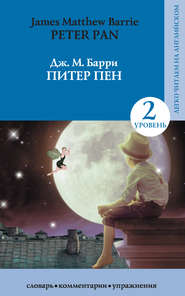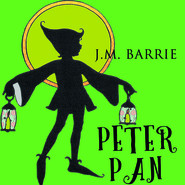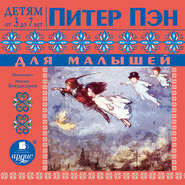По всем вопросам обращайтесь на: info@litportal.ru
(©) 2003-2024.
✖
When a Man's Single: A Tale of Literary Life
Автор
Год написания книги
2017
Настройки чтения
Размер шрифта
Высота строк
Поля
Sir Clement must have been very impulsive, for on returning to the castle he had intended to treat Miss Abinger with courteous coldness, as if she had been responsible for his flight, and he had not seen her again for ten minutes before he asked her to marry him. He meant to explain his conduct in one way to the colonel, and he explained it in quite another way.
When Colonel Abinger took him into the smoking-room on Christmas Eve to hear what he had to say for himself, the baronet sank into a chair, with a look of contentment on his beautiful face that said he was glad to be there again. Then the colonel happened to mention Mary's name in such a way that he seemed to know of Sir Clement's proposal to her three years earlier. At once the baronet began another story from the one he had meant to tell, and though he soon discovered that he had credited his host with a knowledge the colonel did not possess, it was too late to draw back. So Mary's father heard to his amazement that the baronet had run away because he was in love with Miss Abinger. Colonel Abinger had read The Scorn of Scorns, but it had taught him nothing.
'She was only a schoolgirl when you saw her last,' he said, in bewilderment; 'but I hardly see how that should have made you fly the house like – yes, like a thief.'
Dowton looked sadly at him.
'I don't know,' he said, speaking as if with reluctance, 'that in any circumstances I should be justified in telling you the whole miserable story. Can you not guess it? When I came here I was not a free man.'
'You were already married?'
'No, but I was engaged to be married.'
'Did Mary know anything of this?'
'Nothing of that engagement, and but little, I think, of the attachment that grew up in my heart for her. I kept that to myself.'
'She was too young,' said the wise colonel, 'to think of such things then; and even now I do not see why you should have left us as you did.'
Sir Clement rose to his feet and paced the room in great agitation.
'It is hard,' he said at last, 'to speak of such a thing to another man. But let me tell you, Abinger, that when I was with you three years ago there were times when I thought I would lose my reason. Do you know what it is to have such a passion as that raging in your heart and yet have to stifle it? There were whole nights when I walked up and down my room till dawn. I trembled every time I saw Miss Abinger alone lest I should say that to her which I had no right to say. Her voice alone was sufficient to unman me. I felt that my only safety was in flight.'
'I have run away from a woman myself in my time,' the colonel said, with a grim chuckle. 'There are occasions when it is the one thing to do, but this was surely not one of them, if Mary knew nothing.'
'Sometimes I feared she did know that I cared for her. That is a hard thing to conceal, and, besides, I suppose I felt so wretched that I was not in a condition to act rationally. When I left the castle that day I had not the least intention of not returning.'
'And since then you have been half round the world again? Are you married?'
'No.'
'Then I am to understand – '
'That she is dead,' said Sir Clement, in a low voice.
There was a silence between them, which was at last broken by the colonel.
'What you have told me,' he said, 'is a great surprise, more especially with regard to my daughter. Being but a child at the time, however, she could not, I am confident, have thought of you in any other light than as her father's friend. It is, of course, on that footing that you return now?'
'As her father's friend, certainly, I hope,' said the baronet firmly, 'but I wish to tell you now that my regard for her has never changed. I confess I would have been afraid to come back to you had not my longing to see her again given me courage.'
'She has not the least idea of this,' murmured the colonel, 'not the least. The fact is that Mary has lived so quietly with me here that she is still a child. Miss Meredith, whom I dare say you have met here, has been almost her only friend, and I am quite certain that the thought of marriage has never crossed their minds. If you, or even if I, were to speak of such a thing to Mary, it would only frighten her.'
'I should not think of speaking to her on the subject at present,' the baronet interposed, rather hurriedly, 'but I thought it best to explain my position to you. You know what I am, that I have been almost a vagrant on the face of the earth since I reached manhood, but no one can see more clearly than I do myself how unworthy I am of her.'
'I do not need to tell you,' said the colonel, taking the baronet's hand, 'that I used to like you, Dowton, and indeed I know no one whom I would prefer for a son-in-law. But you must be cautious with Mary.'
'I shall be very cautious,' said the baronet; 'indeed there is no hurry, none whatever.'
Colonel Abinger would have brought the conversation to a close here, but there was something more for Dowton to say.
'I agree with you,' he said, forgetting, perhaps, that the colonel had not spoken on this point, 'that Miss Abinger should be kept ignorant for the present of the cause that drove me on that former occasion from the castle.'
'It is the wisest course to adopt,' said the colonel, looking as if he had thought the matter out step by step.
'The only thing I am doubtful about,' continued Dowton, 'is whether Miss Abinger will not think that she is entitled to some explanation. She cannot, I fear, have forgotten the circumstances of my departure.'
'Make your mind easy on that score,' said the colonel; 'the best proof that Mary gave the matter little thought, even at the time, is that she did not speak of it to me. Sweet seventeen has always a short memory.'
'But I have sometimes thought since that Miss Abinger did care for me a little, in which case she would have unfortunate cause to resent my flight.'
While he spoke the baronet was looking anxiously into the colonel's face.
'I can give you my word for it,' said the colonel cheerily, 'that she did not give your disappearance two thoughts; and now I much question whether she will recognise you.'
Dowton's face clouded, but the other misinterpreted the shadow.
'So put your mind at rest,' said the colonel kindly, 'and trust an old stager like myself for being able to read into a woman's heart.'
Shortly afterwards Colonel Abinger left his guest, and for nearly five minutes the baronet looked dejected. It is sometimes advantageous to hear that a lady with whom you have watched the moon rise has forgotten your very name, but it is never complimentary. By and by, however, Sir Clement's sense of humour drove the gloom from his chiselled face, and a glass bracket over the mantelpiece told him that he was laughing heartily.
It was a small breakfast party at the castle next morning, Sir Clement and Greybrooke being the only guests, but the baronet was so gay and morose by turns that he might have been two persons. In the middle of a laugh at some remark of the captain's, he would break off with a sigh, and immediately after sadly declining another cup of coffee from Mary, he said something humorous to her father. The one mood was natural to him and the other forced, but it would have been difficult to decide which was which. It is, however, one of the hardest things in life to remain miserable for any length of time on a stretch. When Dowton found himself alone with Mary his fingers were playing an exhilarating tune on the window-sill, but as he looked at her his hands fell to his side, and there was pathos in his fine eyes. Drawn toward her, he took a step forward, but Miss Abinger said 'No' so decisively that he stopped irresolute.
'I shall be leaving the castle in an hour,' Sir Clement said slowly.
'Papa told me,' said Mary, 'that he had prevailed upon you to remain for a week.'
'He pressed me to do so, and I consented, but you have changed everything since then. Ah, Mary – '
'Miss Abinger,' said Mary.
'Miss Abinger, if you would only listen to what I have to say. I can explain everything. I – '
'There is nothing to explain,' said Mary, 'nothing that I have either a right or a desire to hear. Please not to return to this subject again. I said everything there was to say last night.'
The baronet's face paled, and he bowed his head in deep dejection. His voice was trembling a little, and he observed it with gratification as he answered —
'Then, I suppose, I must bid you good-bye?'
'Good-bye,' said Mary. 'Does papa know you are going?'
'I promised to him to stay on,' said Sir Clement, 'and I can hardly expect him to forgive me if I change my mind.'
This was put almost in the form of a question, and Mary thought she understood it.
'Then you mean to remain?' she asked.
'You compel me to go,' he replied dolefully.

















